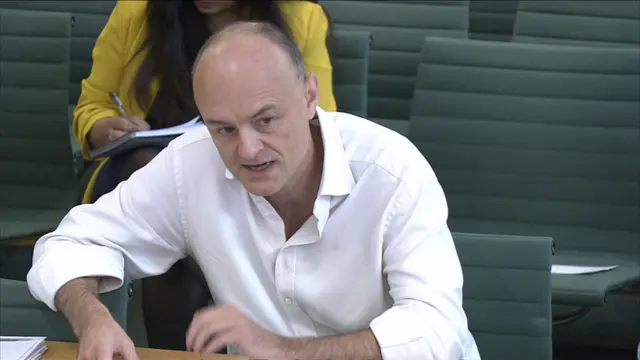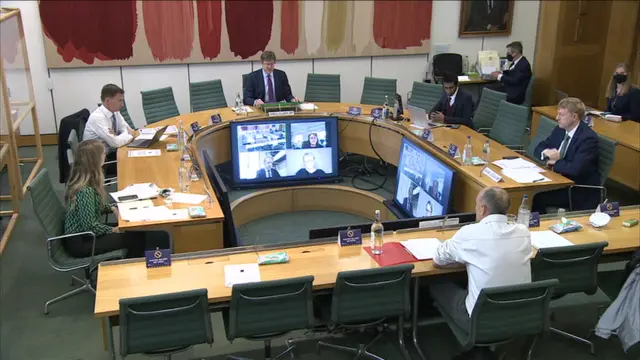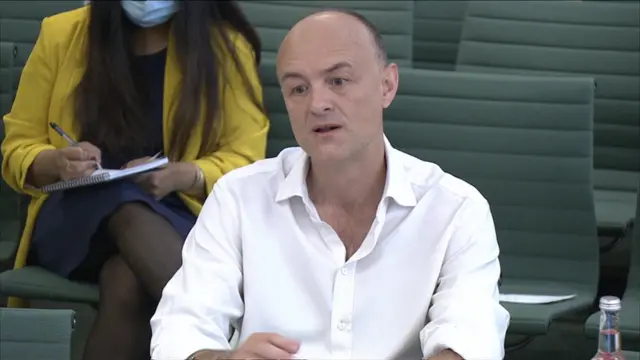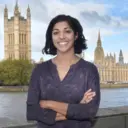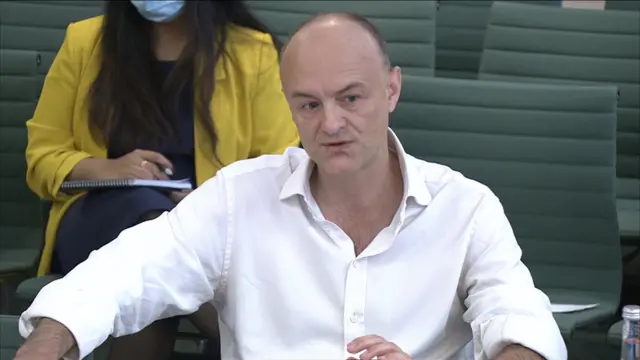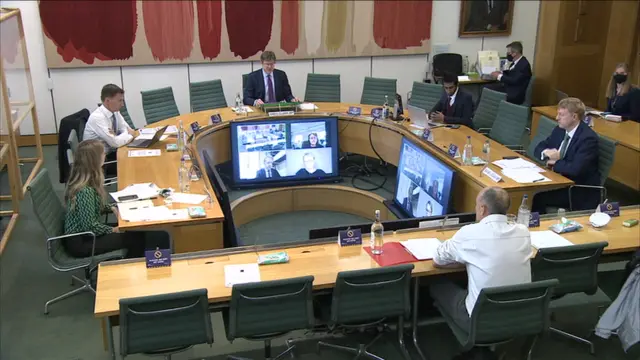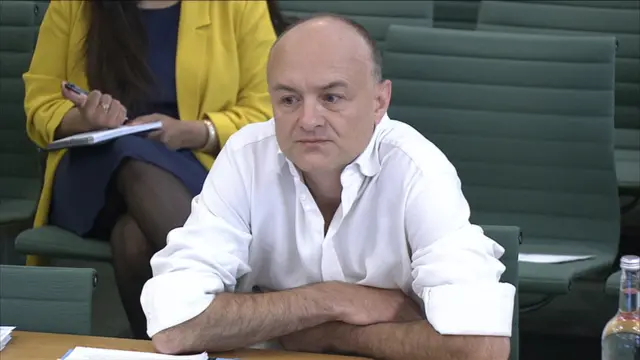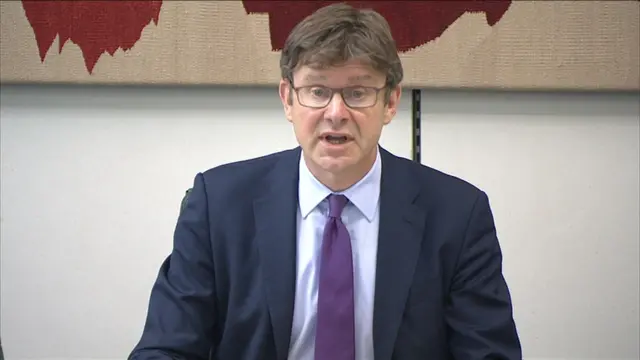Cummings: 'Very smart people' told me the UK needed to lock downpublished at 10:25 BST 26 May 2021
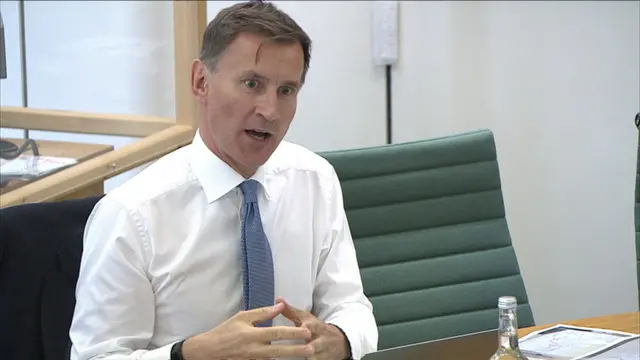 Image source, HoC
Image source, HoCHealth Secretary Jeremy Hunt has taken over for the next section of questioning.
He asks, in the Sage meeting on 5 March, it was five weeks after the pandemic emergency was declared by the World Health Organisation (WHO). He asks if he advised the PM that Sage was wrong by only advising to protect the elderly.
"No I didn't," Cummings says, but adds "I was ringing increasing alarm bells" around that time.
He says in February "very smart people were saying to me America is screwing this up... we're going to have to lock down".
He says the official view even in to the 16 March was "that was going to be more dangerous" than letting the virus spread.
"I was also really, really worried about smashing my hand down on a massive button" that would have stopped the official plan, "around about the 5th, I was still reluctant to do that".
He says no-one was "drawing the obvious conclusion" that pubs and leisure facilities needed to close.
On the morning of the 12 March, he says he texted the PM and Chief Scientific Adviser, Sir Patrick Vallance, "there's going to be massive pushback" asking why more rules were not being introduced earlier.
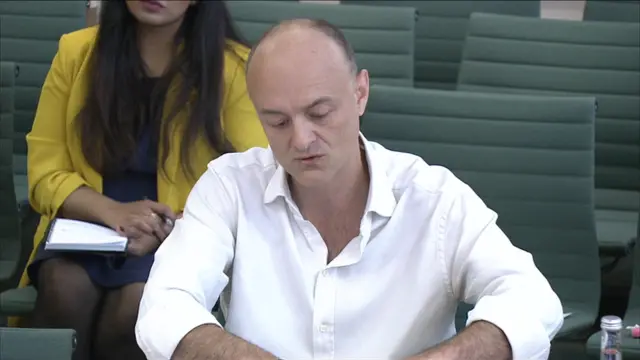 Image source, HoC
Image source, HoC